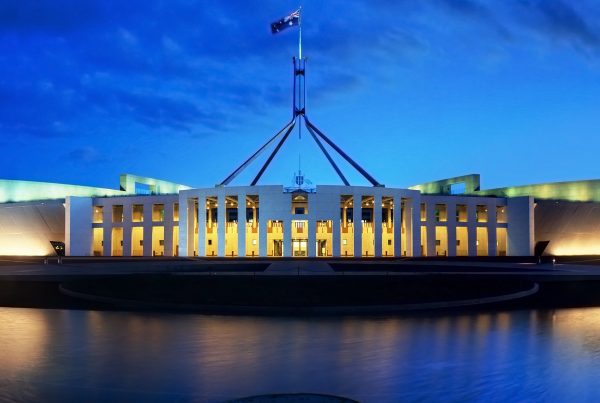It’s rare to find an article on gas that is reasonably objective and tells a reasonably complete story, and is comprehensible to most of us readers. Here is one, written by the author of that wonderful book, Hot Flat and Crowded. Thomas Friedman is writing about oil shale gas in the US, but it is directly relevant to our battles over coal seam gas in Australia. He makes these four points:
1. Gas emits half as much greenhouse gas when combusted as coal. That’s good
2. But there is a hidden, long-term, cost of using gas: it could undermine new investments in wind, solar, nuclear and energy efficiency systems — which have zero emissions — and thus keep us addicted to fossil fuels for decades. That’s bad.
3. While it is cleaner, extracting it can be a very dirty process. That’s bad too.
4. To get it right, we have to get the economics right, so we’re all incentivised to do the right thing. So, as Friedman poses: Why not a carbon tax that raises enough money to help pay down the deficit and lower both personal income taxes and corporate taxes — and ensures that renewables remain competitive with natural gas? Hmmmm. Do you think US politicians, having watched what’s happened here, are going to think that’s doable?
Get It Right on Gas: NYT
By THOMAS L. FRIEDMAN: Published: August 4, 2012
WE are in the midst of a natural gas revolution in America that is a potential game changer for the economy, environment and our national security — if we do it right.

The enormous stores of natural gas that have been locked away in shale deposits across America that we’ve now been able to tap into, thanks to breakthroughs in seismic imaging, horizontal drilling and hydraulic fracturing, or “fracking,” are enabling us to replace much dirtier coal with cleaner gas as the largest source of electricity generation in America. And natural gas may soon be powering cars, trucks and ships as well. This is helping to lower our carbon emissions faster than expected and make us more energy secure. And, if prices stay low, it may enable America to bring back manufacturing that migrated overseas. But, as the energy and climate expert Hal Harvey puts it, there is just one big, hugely important question to be asked about this natural gas bounty: “Will it be a transition to a clean energy future, or does it defer a clean energy future?”
That is the question — because natural gas is still a fossil fuel. The good news: It emits only half as much greenhouse gas as coal when combusted and, therefore, contributes only half as much to global warming. The better news: The recent glut has made it inexpensive to deploy. But there is a hidden, long-term, cost: A sustained gas glut could undermine new investments in wind, solar, nuclear and energy efficiency systems — which have zero emissions — and thus keep us addicted to fossil fuels for decades.
That would be reckless. This year’s global extremes of droughts and floods are totally consistent with models of disruptive, nonlinear climate change. After record warm temperatures in the first half of this year, it was no surprise to find last week that the Department of Agriculture has now designated more than half of all U.S. counties — 1,584 in 32 states — as primary disaster areas where crops and grazing areas have been ravaged by drought.
That is why on May 29 the British newspaper The Guardian quoted Fatih Birol, the chief economist for the International Energy Agency, as saying that “a golden age for gas is not necessarily a golden age for the climate” — if natural gas ends up sinking renewables. Maria van der Hoeven, executive director of the I.E.A., urged governments to keep in place subsidies and regulations to encourage investments in wind, solar and other renewables “for years to come” so they remain competitive.
Moreover, while natural gas is cleaner than coal, extracting it can be very dirty. We have to do this right. For instance, the carbon advantage can be undermined by leakage of uncombusted natural gas from wellheads and pipelines because methane — the primary component of natural gas — is an extremely powerful greenhouse gas, more powerful than carbon dioxide. The big oil companies can easily maintain high drilling standards, but a lot of fracking is done by mom-and-pop drillers that do not. The standards that can make fracking environmentally O.K. are not expensive, but the big drillers want to make sure that the little guys have to apply them, too, so everyone has the same cost basis.
On July 19, Forbes interviewed George Phydias Mitchell, who, in the 1990s, pioneered the use of fracking to break natural gas free from impermeable shale. According to Forbes, Mitchell argued that fracking needs to be regulated by the Department of Energy, not just states: “Because if they don’t do it right, there could be trouble,” he says. There’s no excuse not to get it right. “There are good techniques to make it safe that should be followed properly,” he says. But, the smaller, independent drillers, “are wild.” “It’s tough to control these independents. If they do something wrong and dangerous, they should punish them.”
Adds Fred Krupp, the president of the Environmental Defense Fund who has been working with the government and companies on drilling standards: “The economic and national security advantages of natural gas are obvious, but if you tour some of these areas of intensive development the environmental impacts are equally obvious.” We need nationally accepted standards for controlling methane leakage, for controlling water used in fracking — where you get it, how you treat the polluted water that comes out from the fracking process and how you protect aquifers — and for ensuring that communities have the right to say no to drilling. “The key message,” said Krupp, “is you gotta get the rules right. States need real inspector capacity and compliance schemes where companies certify they have done it right and there are severe penalties if they perjure.”
Energy companies who want to keep regulations lax need to understand that a series of mishaps around natural gas will — justifiably — trigger an environmental backlash to stop it.
But we also need to get the economics right. We’ll need more tax revenue to reach a budget deal in January. Why not a carbon tax that raises enough money to help pay down the deficit and lower both personal income taxes and corporate taxes — and ensures that renewables remain competitive with natural gas? That would ensure this gas revolution transforms America, not just our electric grid.







“Why not a carbon tax…?” Indeed! Taxing a bad thing (carbon) and reducing tax on a good thing (employment) would be a net win for our economy and environment. Makes sense to everyone except flat earth science deniers, and politicians… shame!
Recently, politicians and publications have conditionally endorsed so-called “safe fracking” as a part of the nation’s energy mix. But safe fracking is an impossibility, and the industry’s claims for it are knowingly based on false premises.
Chief among them is the notion that a “leakproof well” is possible. We’ve heard time again that strict regulation is the key to moving forward on fracking, and that new regulations should make sure that industry constructs leakproof wells that do not pollute the water table. There is no such thing as a leakproof gas well. The gas industry knows this; in fact, it has known it for decades.
I recently made a short film addressing the well casing failure issue called THE SKY IS PINK and you can watch it here: www.pinkskyny.com.
A 2003 joint industry publication from Schlumberger, the world’s No. 1 fracking company, cites astronomical failure rates of 60 percent over a 30-year span. To imagine gas companies voluntarily committing to an eternity of costly maintenance on wells failing at ever-increasing rates is beyond credulity. “Safe fracking” is a contradiction in terms.
Leaking gas wells at these rates mean thousands across the nation have enough contaminants in their water and land to render them unfit for residential use.
It’s not only the gas wells that have integrity problems; it is the oil and gas industry itself. We can believe in their self-interested assertions of leakproof wells about as much as we can expect pigs to fly.